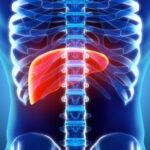 The longest patient survived 43 years and 2 months. Five young patients got married after resection and have had babies. One patient with a tumor measuring 17 x 13 x 9 cm (the largest tumor) survived for 37 years after resection, still alive, free of disease.
The longest patient survived 43 years and 2 months. Five young patients got married after resection and have had babies. One patient with a tumor measuring 17 x 13 x 9 cm (the largest tumor) survived for 37 years after resection, still alive, free of disease.
How long do most people live with liver cancer?
The general 5-year survival rate for liver cancer in the United States is 20%, compared to 3% 40 years ago. Survival rates depend on several factors, including the stage of the disease. For the 43% of people who are diagnosed with liver cancer at an early stage, the 5-year survival rate is 35%.
Has anyone ever beat liver cancer?
For some people with liver cancer, treatment can remove or destroy the cancer.
Can you fully recover from liver cancer?
If your cancer is at stage A when diagnosed, a complete cure may be possible. The 3 main ways this can be achieved are: removing the affected section of liver – known as a resection. having a liver transplant – an operation to remove the liver and replace it with a healthy one.
Chemotherapy and Immunotherapy are also often used to treat liver cancer along with CyberKnife Radition Therapy.
CyberKnife offers patients a non-invasive option for both primary and metastatic liver cancer treatment with great success.
It is used to treat lesions in people who are not candidates for surgery, those who choose not to have surgery, or those who have failed chemotherapy treatment.
Liver cancer is the fifth most common cancer in men and the ninth most common cancer in women worldwide. The incidence rate of liver cancer is larger in developing countries, but is, unfortunately, rapidly growing in the U.S.
However many more people are surviving it and/or living many years with it.
Here’s David’s Story: Stage 4 Liver Cancer Survivor

David Prince, now 76, recalls the wonderful road trips he took with his family when he was a child. “My father had a fascination with visiting cemeteries, and I remember being impressed by the lists of accomplishments that filled row after row of tombstones.”
So it makes sense that four years ago, when he discovered he had stage 4 liver cancer that had spread to his lung, the first thing he did was order a tombstone. “It was important for me to see what I’d done with my life before I died,” says David.
A few minutes with David and you quickly realize that what he’s done would be impossible to fit on an ordinary cemetery marker.
A native of Fredonia, New York, he grew up helping run his family business, a local service station. As a young man, he was drafted into the Army and served as an MP — Military Policeman. His first assignment took him to Selma, Alabama, where he was appointed to protect Martin Luther King, Jr., and marchers during the legendary 1965 civil rights march from Selma to Montgomery. Soon after, he was deployed to Vietnam, where, along with his regular duties, he was assigned to escort and protect General William Westmoreland, commander of U.S. forces during the Vietnam War, and Vice President Hubert Humphrey, during their visits to Saigon.
After returning to the States, David began a long-time career with the Dunkirk and Fredonia Phone Company (DFT). On nights and weekends he also worked as a police officer in the Town of Sheridan, where he had bought a house and started a family. Over the years he has also served as police chief for the Town of Sheridan and special deputy for the County of Chautauqua. In 1990 he was elected judge for the Town of Pomfret and in 1997 as judge in the Village of Fredonia, holding both part-time positions until he retired from the Town Justice position at the end of 2015. As if that weren’t enough, he has been a volunteer fireman for more than 50 years.
Faced with cancer in 2015, David chose to make time in his busy life for treatment and recovery.
“There was good news and bad news,” he recalls. “Dr. Renuka Lyer explained that, given my current state, my life expectancy could be as little as six months. But the good news was that a new experimental drug was available and that I could be part of the clinical trial.”
For three and a half years, David followed a daily chemotherapy treatment, which he took in pill form. His tumors shrank more than 50%. He was able to continue with his work as a judge in the Village of Fredonia, but chose to reduce his workload slightly by not running for reelection in the Town of Pomfret.
In September 2018, his doctors noted a significant change in David’s bloodwork and scans and determined that the drugs were no longer effective. “Now we’re trying something new, another clinical trial, a type of immunotherapy that uses my own cells to fight off the cancer cells,” explains David. “The side effects are milder. There is some joint discomfort, but I’m willing to continue treatment as long as it seems to be working.”
More than four years after his diagnosis, David is positive, inspirational and appreciative.
“I’ve had a wonderful ride, and every new day is a bonus. I felt so good yesterday, it’s hard for me to believe that I’m full of cancer. I just thank the Lord and my church family for all of their prayers. Right now I’m enjoying life and look forward to enjoying much more.”
Key Facts About Liver Cancer
- An estimated 42,230 new cases of liver cancer will be diagnosed in the U.S. in 2021, with 30,230 deaths expected to result from the diagnosis.
- For the 44% of people who are diagnosed with liver cancer at localized-stage, the five-year survival rate is 34%.
- For those people diagnosed with liver cancer at regional stages, the five-year survival rate drops to 12%.
- In the U.S., liver cancer incidence has more than tripled since 1980.
- Liver cancer is approximately three times as likely to occur in men than in women.
- The liver is a common place where cancer spreads. Colorectal, breast, esophageal, stomach, pancreatic, kidney, lung and melanoma skin cancers are the most common sources of cancer
- Approximately 70% of liver cancer cases in the US could potentially be prevented through elimination of risk factors, the most important include: excess body weight; type 2 diabetes; infection with hepatitis B virus (HBV) and/or hepatitis C (HCV), heavy alcohol consumption and tobacco smoking.
Source: American Cancer Society
Liver Cancer Signs and Symptoms: A symptom is a change in the body that a person can see and/or feel. A sign is a change that the doctor sees during an examination or on a laboratory test result. If you have any of the symptoms below, it does not mean you have cancer but you should see your doctor or health care professional so that the cause can be found and treated, if needed.
Weight loss (without trying)
- Loss of appetite
- Feeling very full after a small meal
- Nausea or vomiting
- An enlarged liver, felt as fullness under the ribs on the right side
- An enlarged spleen, felt as fullness under the ribs on the left side
- Pain in the abdomen (belly) or near the right shoulder blade
- Swelling or fluid build-up in the abdomen (belly)
- Itching
- Yellowing of the skin and eyes (jaundice)
What are the Risk Factors of Liver Cancer?
The two most prominent risk factors for liver cancer are alcohol abuse and smoking tobacco. Existing conditions may also increase your risk of developing liver cancer such as cirrhosis of the liver, metabolic diseases, and diabetes.
How is Liver Cancer Diagnosed?
Most cases of liver cancer are detected when a patient complains of any of the above symptoms. The doctor will then prescribe tests such as:
Magnetic Resonance Imaging (MRI)
Computed Tomography (CT)
Ultrasound
Where Can I Get Liver Cancer Treatment in Miami?
There are many ways to treat liver cancer, however, one of the most effective is radiation therapy. You can receive radiation therapy for liver cancer treatment in Miami by visiting the CyberKnife Center Of Miami.
CyberKnife therapy is a painless and minimally invasive alternative liver cancer treatment.
How Does Liver Cancer Treatment with CyberKnife Work?
CyberKnife uses highly advanced precision and tracking technology to continuously pinpoint and follow a tumor’s exact location. The CyberKnife System delivers 100 to 200 radiation beams to attack only the tumor from various angles.
This leaves healthy tissue unharmed while destroying cancerous cells. This is especially beneficial when treating liver cancer because the liver tissue is so sensitive to radiation and treating large volumes of liver tissue can destroy the liver.
CyberKnife’s technology eliminates the risk of healthy tissue being affected by radiation, while providing a pain-free, incision-free alternative to liver cancer treatment.
Am I A Candidate for Liver Cancer Treatment with CyberKnife?
In order to determine if you are eligible to receive radiation therapy with the CyberKnife Center of Miami, one of our specially trained Radiation Oncologists will need to meet with you for a consultation.
During your consultation, the Radiation Oncologist will review your medical history, your cancer diagnosis, your personal information and review your previous imaging studies.
Most people do qualify for liver cancer treatment with CyberKnife radiation therapy. To book your consultation please call our office at (800) 204-0455.
